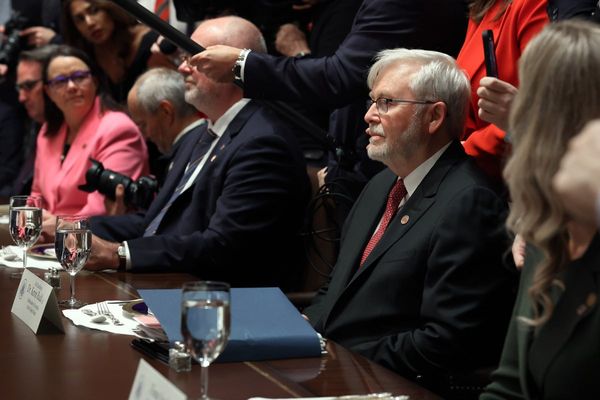
Michael Marmot (Studying health inequalities has been my life’s work. What’s about to happen in the UK is unprecedented, 9 April) raises a grim spectre for the health of the poverty-stricken in the UK. However, the warning given in his article is not unprecedented, even if the dire consequences are.
Forty-two years ago, the Black report on inequalities in health found that there were differences in mortality rates across the social groups, with those in lower social groups suffering higher rates of mortality. It also found inequalities in access to health services, with low rates of uptake by the working classes to preventive services in particular.
It was ready for release by the then Labour government in early 1979, but sat on by the succeeding Tory government until August 1980. The only hope in the 42 years since then was Gordon Brown’s 1998 Sure Start programme, which aimed to tackle poverty and health by trying to give children the best possible start in life.
I’d like to hear what Marmot feels are the reasons why the public psyche is largely oblivious to the poverty and health cause and effect. Is it the grip of illiberal “liberal” capitalism or the fact that Tory governments just have no idea how people actually live?
Jonathan Hauxwell
Crosshills, North Yorkshire
• Michael Marmot’s account of the increasing levels of inequality and poverty in this country is an indictment of all our politicians for failing to give priority to the most needy in our society. I think of the passage in St Matthew’s gospel in which Jesus praises those who feed the hungry, welcome the stranger, clothe the naked, care for the sick and comfort the prisoner: “as you did it to one of the least of these who are members of my family, you did it to me”. Our duty is clear, as is the duty of our politicians, who should be judged on one thing above all others, their treatment of “the least” in our society. I can think of no better manifesto promise than a commitment to “the least”, the people Marmot characterises as unable to meet their basic needs.
Peter Philpott
Patrick Brompton, North Yorkshire
• Michael Marmot’s hard-hitting and accurate description of the impact of poverty on both mental and physical health is essential reading, especially for politicians, policymakers and clinicians. He emphasises that “the essentials of life include whatever is necessary to take your place in public without shame”. A lack of essentials leads to poorer mental health, and this applies to all citizens, including people with learning disabilities, asylum seekers and other excluded groups.
Marmot makes a good case for universal basic services. In wealthy Britain, no one should be dependent on charity to live and to belong – isn’t this what levelling up should be about?
Sheila Hollins
Founder and chair, Beyond Words
• Michael Marmot says that scarcity “reduces intellectual bandwidth”. That in turn leads people to make bad choices. Another terrifying thing about the times that we live in is that the bad choices include not voting or – worse, if possible – voting Conservative, for the very same people who created the poverty that you suffer from and who will make it worse.
Jeremy Cushing
Taddyforde, Exeter
• Have an opinion on anything you’ve read in the Guardian today? Please email us your letter and it will be considered for publication.







